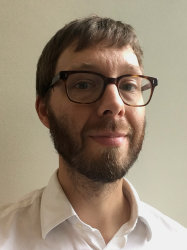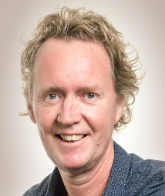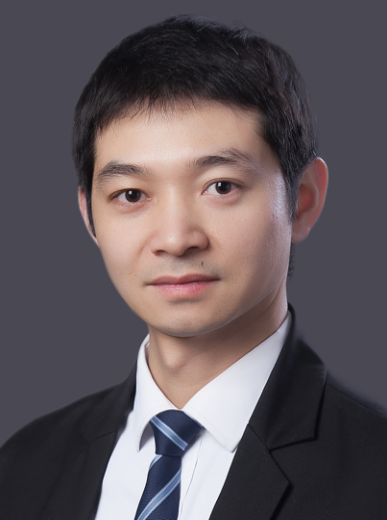2024华中农大-帝国理工“计算社会科学方法论”国际暑期学校招生简章


计算社会科学(Computational Social Science)是运用计算机运算方法模拟、分析社会现象的新兴交叉学科领域,为研究社会互动、主体异质性、行为机制、政策效应预测等复杂性社会科学问题提供了有力工具。而计算机仿真建模是计算社会科学的一项核心研究方法。
自2019年以来,华中农业大学每年联合帝国理工大学、美国RTI国际、德国IAMO、荷兰格罗宁根大学等欧美知名研究机构开展以社会仿真为主的计算社会科学方法培训,已有国内外70多个科研院校的400多位青年教师和学生参加学习。今年,“计算社会科学方法论”国际暑期学校将邀请国内外四位知名计算社会科学专家,继续提供零起点、系统性的仿真建模理论、方法和应用培训。
授课时间
2024年8月19日-23日(固定为8月倒数第二周)
授课方式
线下授课
授课地点
武汉市洪山区华中农业大学人文社科楼
招生对象
面向国内外有兴趣运用计算机仿真建模方法从事研究的教师和学生。授课语言为英语,参与者需要具备一定的英语听说能力。
主办单位
华中农业大学经济管理学院 Asian Social Simulation Association (ASSA)
承办单位
华中农业大学宏观农业研究院 帝国理工大学城市系统实验室 中国仿真学会农业建模与仿真专委会
授课内容
● 社会科学研究中的仿真建模范式
● 基于主体建模(Agent-based Modelling)原理与方法
● 基于主体仿真模型中的决策机制
● NetLogo平台仿真建模方法
● 计算机仿真模型描述ODD协议
● 仿真模型的参数估计与敏感性分析
● 地理信息系统与计算机仿真建模的结合
● 参与式计算机仿真模型
● 基于微观行为仿真的公共政策评估
● 典型个体决策仿真模型应用
授课团队
主讲人

Koen H. van Dam,帝国理工大学工学院与城市系统实验室研究员,开发了大量模拟社会-技术系统和复杂城市系统的计算机仿真模型,多年在牛津大学、剑桥大学等讲授社会仿真课程和培训,著有Agent-Based Modelling of Socio-Technical Systems一书。长期开展城市可持续设计、智慧城市、社会与技术互动等问题的机理仿真和政策分析。
个人主页:https://www.imperial.ac.uk/people/k.van-dam

Wander Jager,格罗宁根社会复杂性研究中心主任,格罗宁根大学副教授,欧洲社会仿真学会前主席。其研究关注社会复杂性、创新扩散、意见动态及社会可持续等问题,以行为经济学和社会心理学理论为基础提出了CONSUMAT分析框架被广泛运用于社会仿真建模。
个人主页:https://www.rug.nl/ucg/about-us/education-teaching-staff/dr.-wander-jager

Zhanli (Jerry) Sun,德国莱布尼兹转型经济农业发展研究所(IAMO)高级研究员、中国研究组负责人。他擅长于元胞自动机、ABM、系统动力学、贝叶斯网络及空间统计等分析模拟工具,在Nature, Global Environmental Change, Environmental Modelling & Software等国际刊物发表论文50余篇,具有10余年ABM教学经验,曾为欧盟智库机构等提供相关培训。
个人主页:https://www.iamo.de/en/institute/staff/details/sun/

熊航,华中农业大学经济管理学院教授、宏观农业研究院副院长,Asian Social Simulation Association创始主席,JASSS期刊编委。他擅长将仿真建模方法运用于农业数字经济、经济与生态耦合和政策事前评估等问题的研究中,开发以小农经济下农户决策行为仿真系列模型。
个人主页:http://mari.hzau.edu.cn/people/Xiong_Hang.htm
助教
李腾,格罗宁根大学与华中农业大学双学位博士生,擅长社会行为决策、意见动力学和社会网络仿真建模。个人主页:https://echotengli.github.io/
吴恩喆,华中农业大学经济管理学院硕士生,擅长仿真模型开发、参数敏感性分析与仿真结果验证。
于雅雯,华中农业大学经济管理学院硕士生,擅长仿真模型开发、社会网络建模分析。
学习费用
参加学习的学员需缴纳培训费,经财务部门审批、备案,培训费收取标准为学生800人民币/人,教师3000人民币/人。
报名与咨询

我们郑重承诺:报名者提供的信息、材料仅用于本期暑期学校使用,对个人信息严格保密!

录取反馈
本期暑期学校拟招收学员100人。2024年6月30日公布录取结果。
联系方式
联系电话:027-87285015
电子邮箱:ComSocSci@outlook.com
关于华中农业大学

华中农业大学(Huazhong Agricultural University),校园位于湖北省武汉市主城区,坐拥狮子山,三面环湖,拥有5平方公里山水校园,9公里浪漫湖岸线,10公里“林中路”,6.6公里湖光绿道,景面文心、情境交融的校园风貌引人入胜。2000年,由农业部划转教育部直属领导。2005年,进入国家“211工程”建设行列。2017年,列入国家“双一流”建设行列。首轮“双一流”成效评价,学校整体建设9项评价指标中,7项指标为第一档。生物学、园艺学、畜牧学、兽医学、农林经济管理5个学科再次滚动入选第二轮国家“双一流”建设学科。
关于经济管理学院
经济管理学院设有农业经济管理系、经济学系、市场营销系、企业管理系、会计学系等5个系,建有从博士后流动站、一级和二级博士点、硕士点到本科的完整学科体系。学院形成以农林经济管理学科为特色,工商管理学科和应用经济学科协调发展的学科格局。2017年,农林经济管理一级学科进入国家“双一流”建设学科行列。2022年,农林经济管理一级学科继续进入第二轮国家“双一流”建设学科行列。
关于宏观农业研究院
宏观农业研究院(Macro Agriculture Research Institute,MARI)是华中农业大学与国际食物政策研究所(IFPRI)共同建立的一所国际化跨学科研究机构,立志建设成为水平一流、具有国际影响力的高端学术平台以及特色鲜明、视野宽广的新型农业智库。MARI由华中农业大学经济管理学院、植物科学技术学院、资源与环境学院、信息学院、公共管理学院、动科-动医学院共同建设。MARI网址:https://mari.hzau.edu.cn
关于帝国理工大学
帝国理工大学(Imperial College London)是一所主攻理学、工学、医学和商学的世界顶尖公立研究型大学,是英国常春藤联盟罗素大学集团成员,又与剑桥大学、牛津大学、伦敦大学学院、伦敦政治经济学院并称为“G5超级精英大学”。在国际学术界有顶级声望,是世界最具创新性的大学之一,在各类权威榜单中排名稳居世界前十。帝国理工大学城市系统实验室(Urban Systems Lab)主要通过计算机仿真模型模拟城市系统和研究城市的可持续发展,并推动计算机仿真在社会科学中运用的方法论研究和方法普及。
2024 ASSA International Summer School on Methodology of Computational Social Science
Computational Social Science (CSS) is an emerging interdisciplinary field that deeply applies computer technology to social science. It provides powerful tools for analyzing complex problems such as interactions among heterogeneous individuals, the micro-level basis of macro phenomena, and multi-objective decision optimization mechanisms. The ASSA Summer School on Methodology of Computational Social Science will be held at Huazhong Agricultural University (HZAU) in Wuhan, China from August 19 to August 23, 2024. During this one-week program, participants will learn about the research process, methods, and tools through lectures, practical tutorials, and engaging discussions.
Since 2019, the Macro Agricultural Research Institute at HZAU has collaborated with institutions such as Imperial College London, RTI International (USA), and IAMO (Germany) to offer training in computational social science methodology. More than 400 young teachers and students from over 70 research institutions in China and abroad have participated in these training sessions. This year’s Summer School invites renowned experts in computational social science to provide zero-to-advanced training in social simulation modelling theories, methods, and applications.
The course content includes, but is not limited to:
1.Simulation Modelling Paradigms in Social Science Research
2.Principles and Methods of Agent-Based Modelling
3.Decision-Making Mechanisms in Agent-Based Simulation Models
4.Application of the HUMAT Theoretical Framework
5.NetLogo and AI-Interactive Platform for Simulation Modelling
6.Describing Simulation Models Using the ODD Protocol
7.Parameter Estimation and Sensitivity Analysis for Simulation Models
8.Integration of GIS and Computer Simulation Modelling
9.Public Policy Evaluation Based on Micro-Behavior Simulation
10.Application of Typical Individual Decision-making Simulation Models
The course will be led by an experienced team of researchers:
Koen H. van Dam Researcher at the Faculty of Engineering and the Urban Systems Laboratory at Imperial College London. He has developed numerous computer simulation models of socio-technical systems and complex urban systems. His research spans topics such as sustainable urban design, smart cities, distributed energy technologies, and social-technical interactions, along with relevant policy analyses.
Wander Jager Associate Professor and Managing Director of the Groningen Center for Social Complexity Studies, and the former president of European Social Simulation Association (ESSA). His research and teaching focus on how interactions between people give rise to the emergence of collective behavior. Wander investigates the spread of new technologies, opinion dynamics, polarization, and societal transitions toward sustainability. He is particularly passionate about the methodology of social simulation, where researchers create computer simulations to model large populations.
Zhanli(Jerry) Sun Senior Researcher and Head of the China Research Group at the Leibniz Institute of Agricultural Development in Transition Economies (IAMO) in Germany. He is proficient in analytical and simulation tools such as cellular automata, ABM, system dynamics, Bayesian networks, and spatial statistics. He has published over 50 papers in international journals including Nature, Global Environmental Change, and Environmental Modelling & Software. With over 10 years of ABM teaching experience, he has provided training for EU think tanks and other relevant institutions.
Hang Xiong Professor at the College of Economics and Management and Deputy Dean of Macro Agriculture Research Institute, Huazhong Agricultural University. He currently serves as the president of Asian Social Simulation Association (ASSA) and as an editorial board member for the Journal of Artificial Societies and Social Simulation (JASSS). With expertise in applying computer simulation and complex network analysis to research in agricultural economics, social interactions, ecological environments, and policy analysis, his doctoral thesis received the Outstanding Paper Award from the European Social Simulation Association.
● Training Dates: August 19-23, 2024.
● Training Format: On-site.
● Location: Humanities and Social Sciences Building, Huazhong Agricultural University, Wuhan, China
● Enrollment Targets: The summer school is open to teachers and students worldwide who are interested in using computational simulation methods for academic research (not limited to the field of social science).
● Organizers:
- College of Economics and Management, Huazhong Agricultural University
- Asian Social Simulation Association (ASSA)
- Macro Agriculture Research Institute, Huazhong Agricultural University
- Urban Systems Laboratory, Imperial College London
- Agricultural Modeling and Simulation Committee, China Simulation Federation.
● Training Fees
Approved by the financial department of HZAU, the training fee standards are 800 RMB per student and 3000 RMB per teacher.
● Registration
Before June 16, 2024, visit the website https://www.wjx.cn/vm/OKqlUFY.aspx# or scan the QR code below to register. We solemnly promise that the information and materials provided by registrants will be used only for this summer school session, and personal information will be strictly confidential.

● Admission Feedback
This summer school plans to admit 100 students. Admission results will be announced on June 30, 2024.
● Contact Information
Phone: 027-87285015
Email: ComSocSci@outlook.com